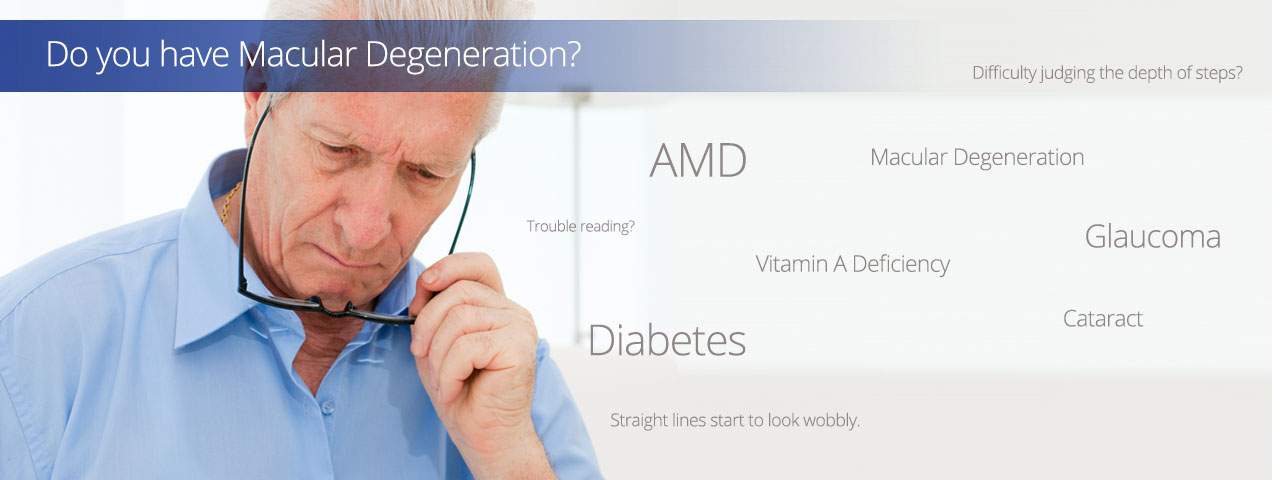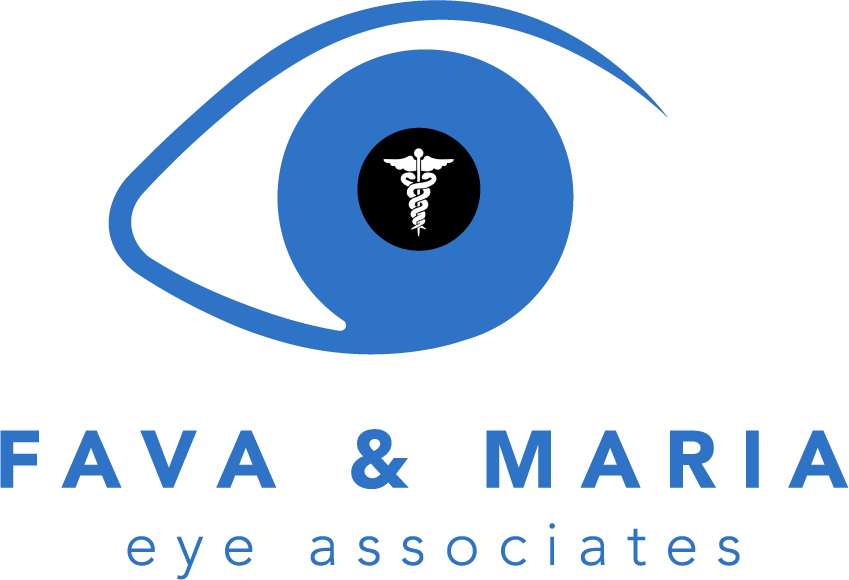
What Is Age Related Macular Degeneration or ARMD?
The macula on the retina provides sharp, central vision. The breakdown of the macula is a disease called macular degeneration, and can be serious. Untreated macular degeneration is one of the leading causes of blindness in those over 65 years old.
While researchers have not yet discovered a cure for age-related macular degeneration (ARMD), there are treatment options which prevent the disease from progressing to blindness, and in some cases, they can even improve vision. It’s important to have an open discussion with your eye doctor about the risks and limitations of ARMD treatments.
Types of Macular Degeneration:
There are 2 basic types of ARMD, the wet form and the dry form.
- Dry macular degeneration is considered the less aggressive form of ARMD. It typically progresses much more slowly, and the level of eyesight damage is less severe. Dry ARMD is detected during routine eye exams, which is why it’s important to have yearly testing. Treating Dry AMD often involves high doses of zinc and antioxidants which have been shown to slow diseases progression.
- Wet macular degeneration is the more severe form of ARMD. Call us to book an emergency eye doctor’s appointment if you experience a sudden worsening of blurry central vision. Wet ARMD occurs when there is abnormal blood vessel growth (angiogenesis), and leakage, which can cause scar tissue to develop. Treatments include laser surgery, injecting light sensitive dyes, or AMD medication injected directly into the eye to inhibit angiogenesis.
What Is the Dry Macular Degeneration Treatment?
As always, getting a macular degeneration test from your eye doctor is a good first step. Dry eye macular degeneration currently cannot be cured, but this does not mean that you will lose your sight. Fortunately, dry macular degeneration develops very slowly. You may lose some of your central vision over the years. However, most people are able to lead normal, active lives – especially if macular degeneration symptoms affect only one eye.
Dry macular degeneration treatments can include taking over-the-counter vitamin supplements. These vitamins, based on The Age-Related Eye Disease Study, should be taken under the close supervision of your eye doctor, and only after a macular degeneration test. Additionally, controlling your cholesterol and blood pressure levels and not smoking are recommended to improve macular degeneration symptoms. Routinely checking each eye with an Amsler Grid can also help you pick up changes in dry eye macular degeneration between your follow-up visits with your eye doctor.
Nutritional Supplements for Macular Degeneration Treatment
Although the exact causes of macular degeneration are not fully understood, antioxidant vitamins in combination with other supplements can reduce the impact of macular degeneration in some people. Dr. Mark Maria points out that a large scientific study found that people at risk for developing advanced stages of macular degeneration lowered their risk by about 25 percent when treated with a high dose combination of vitamin C (500 mg), vitamin E (400 iu), Lutein (10 mg), Zeaxanthin (2 mg), zinc (80 mg) and copper (2 mg). Another large study in women showed a benefit from taking folic acid and vitamins B6 and B12. Among those who have either no macular degeneration symptoms or very early AMD, the supplements did not appear to provide an apparent benefit.
Guidelines were also recently published in the Journal of the American Medical Association that recommend a multivitamin supplement for all adults. Some European studies (including the Rotterdam study) show antioxidant micronutrient supplements may slow the earlier stages of wet macular degeneration and dry macular degeneration, or lower the risk of developing macular degeneration symptoms by 35%.
Recommendations for Macular Degeneration Treatment
Dr. George Fava states that it is very important to remember that vitamin supplements are not a cure for macular degeneration, nor will they restore blurry vision that has already been lost. However, specific amounts of these supplements do play a key role in helping some people at high risk for advanced wet macular degeneration and dry macular degeneration to maintain their vision. You should speak with your eye doctor to determine if you are at risk for developing advanced AMD and to learn if supplements are recommended for your macular degeneration treatment. A proper diet, regular exercise program, control of known medical conditions and avoiding ultraviolet exposure through use of sunscreens and quality sunglasses are all important to maintaining healthy eyes and a healthy body.
At Fava and Maria Eye Associates, our eye doctors recommend a supplement regimen for at-risk patients with macular degeneration symptoms. Supplements can be obtained through our office, your pharmacy, your health food store or online. The quality and availability of nutrients for macular degeneration symptoms can vary widely. There is some evidence that natural supplements are more readily absorbed than synthetic.
Certain cautions apply to using vitamin and mineral supplements for macular degeneration treatment. As always, allow your eye doctor to do a full macular degeneration test before beginning any treatment. Additionally, smokers and former smokers should not use Beta Carotene in the recommended amounts and instead should use a different form of Vitamin A. Zinc should not be taken without copper to prevent anemia or cardiovascular disease. Caution should also be used when combining different vitamins in order to avoid overdosing. Most vitamins should be consumed with food to aid absorption and reduce the possibility of stomach irritation. Please check with your eye doctor for current supplement recommendations for dry macular degeneration and wet macular degeneration.
What Is Wet AMD Treatment?
Wet macular degeneration can occur at any time in either eye. Wet macular degeneration symptoms are a very sudden, rapid and severe loss of central vision. Abnormal blood vessels grow into your macula, causing bleeding and swelling. The damage to your macula can cause permanent loss of central vision. Fortunately, wet AMD treatment is available. In the past, lasers were used for wet AMD treatment. However, these laser treatments have largely been replaced by more effective therapies that include medicines injected directly into the eye at regular intervals. Although a repeated-injection wet AMD treatment may sound frightening and painful, most patients say the anticipation is worse than the actual injection.
There are several medicines that can be administered into the eye to treat wet macular degeneration. Your eye doctor will discuss with you the one most appropriate for your macular degeneration symptoms. With the injections, continued loss of vision can often be halted, thereby maintaining your vision. A good percentage of people do enjoy an improvement in vision as well with these wet AMD treatments.
As with any medical procedure, there is a small risk of complications following these injections for wet macular degeneration. These usually are from the injection itself, which in rare circumstances can injure the eye’s lens or retina or lead to an infection. For most patients, the benefit of the wet AMD treatments far outweigh the small risk of injection injury.
Life With Macular Degeneration Symptoms
Early detection and treatment may reduce the loss of vision from dry macular degeneration and wet macular degeneration. However, if some loss of vision or blurry vision should occur, it doesn’t have to rob you of life’s simplest pleasures if you learn how to use your remaining eyesight. Low vision aids, special lenses or electronic systems and training can maximize your ability to read and perform other activities. Ask your eye doctor about additional information on low vision aids. We have low vision specialists on staff to help cope with this common and often frustrating problem. Remember, the first step is a macular degeneration test with your eye doctor.


Saturday By Appointment Only